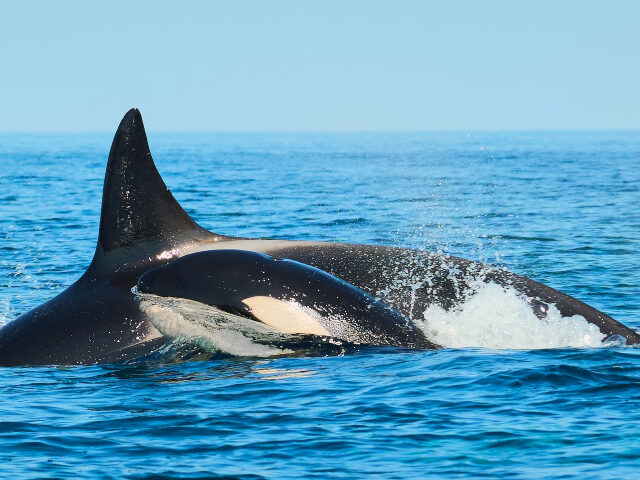The Pacific Ocean orca mother that made headlines in 2018 for carrying the body of her dead calf for over two weeks appears to be in mourning again, with researchers observing her carrying the carcass of her latest offspring.
The female killer whale, referred to by scientists as J35 or “Tahlequah,” garnered sympathy from wildlife enthusiasts when she was spotted desperately lifting the corpse of her infant off the coast of Victoria, British Columbia, about seven years ago.
Researchers grieved alongside Tahlequah as she carried her baby’s body on her head for at least 17 days over approximately 1,000 miles. Biologist and wildlife conservationist Jeff Corwin called it a “mourning period” and nonprofit Wild Orca research director Deborah Giles said she was “gravely concerned for [her] health and mental wellbeing.”
Over the years since Tahlequah’s remarkably touching grieving process went viral and was reported on internationally, she has given birth again.
In 2020, she successfully birthed a male calf, called J57 or “Phoenix,” who beat the odds and survived, according to the Orca Conservancy.
Tahlequah garnered nail-biting attention again in December 2024 when she gave birth to a female, dubbed J61, but the new calf sadly passed away and the orca mother once again is doing her mourning ritual, the New York Times reported.
“It’s so much harder to see now that she has lost another one,” Brad Hanson, a research scientist at the Northwest Fisheries Science Center in Seattle, Washington, part of the National Oceanic and Atmospheric Administration (NOAA), told the publication.
These animals are a part of the highly endangered Southern Resident Killer Whales (SRKW) group, a genetically and culturally distinct orca population in the Pacific Northwest region that consists of three separate “pods” — J, K, and L, according to the Orca Conservancy.
The total population of the SRKW is just 73, the nonprofit stated.
The Center for Whale Research, which announced the news of J61’s birth just weeks ago, pasted a sad update on social media:
New Year’s Eve 2024 was a day of extreme highs and lows. We have confirmation of another new calf in J pod, but sadly,…
Posted by Center for Whale Research on Wednesday, January 1, 2025
“The death of any calf in the SRKW population is a tremendous loss, but the death of J61 is particularly devastating, not just because she was a female, who could have one day potentially led her own matriline but also given the history of her mother J35 who has now lost two out of four documented calves – both of which were female,” researchers with the center wrote on Facebook. “The entire team at the Center for Whale Research is deeply saddened by this news and we will continue to provide updates when we can.”
“Over the last few years, we realize that we have the same neurotransmitters that they have,” Joe Gaydos, science director of the SeaDoc Society at the University of California, Davis, told the New York Post.
“We have the same hormones that they have. Why shouldn’t we also have the emotions that they have? We don’t have the market cornered on emotions. So I think it’s fair to say that she is grieving or mourning.”

COMMENTS
Please let us know if you're having issues with commenting.